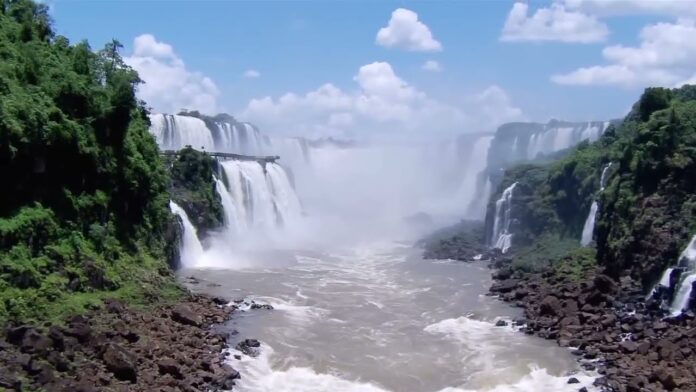Environmental disasters have devastating consequences on our planet and its inhabitants. One of the most destructive forms of pollution is marine pollution, caused by oil spills. These spills can occur due to natural disasters, human error, or intentional acts, and can have severe impacts on marine life, bird populations, and coastal ecosystems. In this blog post, we will delve into the causes and effects of oil spills on ecosystems, as well as the efforts made for response and cleanup and the long-term consequences.
Causes of Oil Spills
Oil spills can happen in various ways, but the most common causes are ship collisions, offshore drilling accidents, and pipeline leaks. Natural disasters such as hurricanes and earthquakes can also damage oil platforms and cause spills. Additionally, tankers and pipelines can be intentionally sabotaged, causing deliberate spills.
Human error is also a significant contributor to oil spills. Inadequate maintenance of equipment, improper disposal of oily waste, and failure to follow safety protocols are all factors that can lead to accidental spills. The transportation of oil through tanker ships is a particularly risky operation, with the potential for collisions and other accidents.
The demand for oil continues to increase, leading to more offshore drilling and the expansion of pipelines. This puts a strain on our environment, making it more vulnerable to oil spills. As the number of oil spills rises, so does the impact on ecosystems.
Effects on Marine Life

Marine life is exceptionally vulnerable to oil spills, as they depend on clean water and healthy habitats to survive. The oil coats the surface of the water, creating a barrier that blocks sunlight and oxygen from reaching the marine plants and animals below. This leads to the death of plants and algae, disrupting the entire food chain.
Additionally, oil contains toxic chemicals that can harm marine animals. When animals come into contact with the oil, it can coat their fur or feathers, making it difficult for them to regulate their body temperature. The ingestion of oil can also lead to internal damage and even death.
Marine mammals, such as whales and dolphins, are also heavily impacted by oil spills. These animals rely on sound for communication and navigation, but the noise from cleanup efforts can disorient and distress them. The chemicals in oil can also cause respiratory problems, leading to lung damage and death.
The effects of oil spills on marine life can be long-lasting and devastating. Even small spills can have significant impacts on local ecosystems, causing a decline in biodiversity and threatening the survival of many species.
Effects on Bird Populations

Oil spills don’t just affect marine life; they also have a severe impact on bird populations. Many birds rely on the ocean for food and nesting grounds, making them vulnerable to the toxic effects of oil spills. When birds come into contact with oil, it can coat their feathers, preventing them from flying and regulating their body temperature.
Intentional or accidental oil spills often occur during the migratory season, making it challenging for birds to find alternative habitats. This can lead to mass deaths and declines in already endangered bird species.
Even after the oil is cleaned up, the contaminated areas can still pose a threat to birds. The toxins in the oil can remain in the environment for years, affecting future generations of birds and other animals.
Impact on Coastal Ecosystems
Oil spills not only harm marine life and bird populations, but they also have a significant impact on coastal ecosystems. The oil can wash up on beaches, damaging the delicate balance of plant and animal life. The destruction of coastal habitats can also have economic consequences, as many communities rely on these ecosystems for fishing and tourism.
Mangroves and coral reefs, which provide important habitats for various species, are also at risk from oil spills. The oil can smother these ecosystems, killing the plants and animals that call them home. The loss of these critical habitats can have a ripple effect on the entire ecosystem, leading to declines in biodiversity and disrupting the food chain.
The chemicals in oil can also seep into the soil and water, contaminating the surrounding area and making it unfit for plant growth. This further disrupts the ecosystem, as plants are essential for providing oxygen and nutrients to other organisms.
Response and Cleanup Efforts
When an oil spill occurs, quick response and cleanup efforts are crucial to minimize its impact on ecosystems. The first step is to contain the spill and prevent it from spreading further. This is typically done by deploying booms and barriers to stop the oil from reaching sensitive areas.
Once the spill is contained, specialized equipment is used to remove the oil from the water’s surface. Skimmers, which are large boats that suck up the oil, are often used, along with sorbents, which are materials that absorb the oil. In some cases, chemical dispersants are used to break down the oil into smaller droplets that can be more easily broken down by bacteria.
Along with physical cleanup efforts, there are also biological methods used to help restore affected ecosystems. Bioremediation involves introducing microorganisms that can break down the oil and reduce its toxicity. This method has been used successfully in some spills, but it can take years for the ecosystem to fully recover.
While these efforts can help mitigate the immediate effects of an oil spill, they do not address the long-term consequences.
Long-Term Consequences
Despite cleanup efforts, the effects of an oil spill can last for decades. The toxins in oil can remain in the environment for years, continuing to harm plants and animals. Additionally, the contamination can make its way up the food chain, affecting larger animals and even humans who consume seafood from the impacted area.
Oil spills can also have economic consequences, especially for communities that rely on fishing and tourism. When these industries are impacted, it can lead to job losses and economic instability.
Furthermore, the damage to coastal ecosystems can have long-lasting effects on the environment. As habitats are destroyed, it becomes more challenging for species to recover and rebound, leading to declines in biodiversity.
Conclusion
In conclusion, oil spills have severe and long-lasting effects on ecosystems. From marine life to bird populations to coastal habitats, no aspect of the environment is left untouched by these environmental disasters. While response and cleanup efforts are essential, prevention should be the ultimate goal to protect our planet and its inhabitants from the devastating impacts of oil spills. As individuals, we can all make small changes in our daily lives to reduce our demand for oil and support sustainable alternatives. Together, we can work towards a cleaner and healthier planet for future generations.









